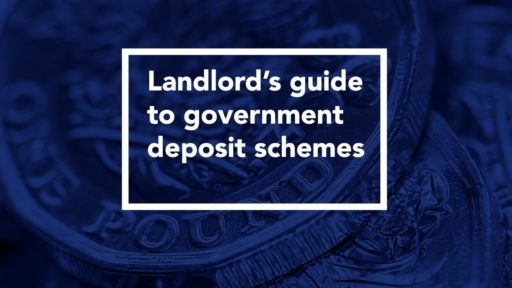Why you should join a Landlords Association

Keeping up with frequent legislative amendments, as well as large scale regulation reform, can seem like a never-ending task; the rental sector in the UK is certainly fast-paced. With the introduction of large financial penalties and even prison sentences for non-compliance, the legalities of being a residential landlord is not something that anyone can afford to get wrong.
Landlord Associations in the UK provide a supportive network of peers and a host of benefits to their members. From professional advice, regular updates and tips to the practical business tools needed to make the lives of residential landlord’s simple and hassle-free.
In an increasingly challenging environment, particularly when faced with the unique difficulties presented by the COVID-19 pandemic, support and advice from like-minded professionals has never been so important.
“We know that relevant local information delivered at a local level is vital, as is the accessible support and meeting places to provide face to face resolutions from experienced landlords. We also operate an “It’s good to talk” program for the sanity of our members who might feel isolated and out of touch.” – Bernie Lewis, Wrekin Landlords Association
- Why join a landlords association?
- How do I join a landlords association?
- What is the cost of joining the national landlords association?
- Which landlord association should I join?
- Who are the typical members of a landlord association?
- Is a membership to a landlord association required?
- Top tips from landlord associations
Why join a landlords association?
Many of our clients ask us about the benefits of joining a Landlord’s Association. So, whether you are new to residential letting with one property and want to find our what you’re responsibilities are as a landlord ,want to find the top documents suggested by landlords or you are a seasoned pro with a large portfolio or somewhere in between, we’ve outlined the key points to consider; we hope you find it helpful:
1. Enhance your reputation and credibility.
The rental market within the UK continues to boom with fewer being able to afford to get onto the property ladder. Tenants are becoming savvy, seeking out reputable landlords who can show that they meet a certain professional standard. As a form of independent verification, your membership to the association will give you the competitive edge, ensuring you find secure, reliable and responsible tenants. It will also demonstrate that you are both professional and trustworthy to trades and suppliers.
2. Resolve potential issues, quickly & easily.
All Landlord’s Associations offer free professional advice, either via a telephone helpline or email. If you needed to consult a solicitor for such matters, you would be unlikely to get more than half an hour of their time for the cost of your annual association membership. It is also worth noting that Landlord’s Associations deal with these matters’ day in, day out so they’re fully up to speed with the latest legislation. There’s no restless night’s worrying as you get the answers you need in no time. The association will help you keep your business running smoothly – avoid any potential stress or confusion; in short, making your life easier.
There are also online forums and regional networking events where you can gain useful insights and learn from the experiences of your peers; if you have an issue, the chances are many other landlords have faced this too and can help.
“We have a helpline available for emergency issues for the members. Over the years we have helped to resolve many disputes between the Landlords and Local Authorities, tenants, neighbours, Letting Agents and HMRC. We also provide advice to other landlords, universities and organisations too.” Tony Bhaur, Leicester Landlords Association
3. Avoid costly errors, penalties and fines.
Landlord law is continually changing – not only is it hard to keep up with, substantial fines are now imposed for Landlord’s that drop the ball. For an example, failure to supply an annual Gas Safety certificate can result in a £6,000 penalty or 6 months imprisonment.
These changes can often be complex, so to ensure that their members are kept fully up to speed with of incoming legislation and landlord certificate requirements all Landlord Associations provide analysis and a clear explanation of your legal requirements. This saves you time and hassle, but also, and perhaps more importantly, gives you peace of mind and the confidence that you are well-versed with the current regulations.
4. A library of resources.
When it comes to assured shorthold tenancy agreements or Scottish private residential tenancy agreements, addendums, eviction notices and notices of rent increases, it is essential that these are legally appropriate – otherwise you may be left with an important document that isn’t worth the paper it is written on.
Associations provide their members with a full library of lawyer-approved, document templates and helpful guides, including, section 24, Section 21, Section 8 , Section 11 and Section 13 notices (or the Scottish equivalents). As very busy people, it gives landlords quick and easy access to professional documentation you have confidence in, meaning you spend far less time on administration.
“Our members can access all forms they need to run a landlord business. We run bi-monthly meetings (usually), a monthly newsletter and regular email updates as well as telephone or email help, ensuring all members kept up-to-date with legal responsibilities and best practice” Ruth Clarke, Cornwall Residential Landlords Association
5. Financial discounts and exclusive member benefits.
Partnering with other businesses and providers, Associations are able to offer their members discounted rates on contents and Landlord’s insurance policies. They can also provide commercial discounts with local trades or suppliers that will be employed on a regular basis. After April 2007, it became law that landlords must protect tenant deposits in a government-approved scheme. Many associations now offer discounted rates on deposit protection schemes. These member benefits combined add up to a substantial amount, particularly if you have a larger property portfolio.
6. Join other voices.
Providing in-depth analysis of landlord related issues, your Landlord Association will campaign on behalf of their members, speaking for the industry as a whole – engaging with policymakers at different levels within regional and national Government. Alone you are one voice, but by joining others, policy change is far more likely.
Your Landlord Association will help you stay ahead by distributing local news updates to members – this is particularly handy if you live out of the area where you let your property.
“Our Policy & Parliamentary Affairs department has been campaigning at the heart of the Scottish Parliament since our incorporation and has had numerous campaigning successes. We also link with Scottish local authorities both centrally and via our local branches and actively campaign on behalf of our members” Judith Dunn, Scottish Association of Landlords
7. E-learning or training courses.
Helpful for new landlords, but also a great way to refresh knowledge for experienced landlords, many associations offer regional training courses or for those unable to attend, e-learning. These cover subjects such as safety and regulations, finance and the management of houses in multiple occupation (shared accommodation).
Landlords associations FAQs
How do I join a landlords association?
The great news is that there are no contracts with Landlord Associations. You simply choose the level of membership that suits your situation and requirements. You can see what they have to offer and join most Associations from their websites. Some have offices you can call, the smaller ones may be run by volunteers.
Should you wish to cancel, you can do so at any time. Most simply require notice in writing to do so.
What is the cost of joining the national landlords association?
Most Associations offer varying levels of affiliation; individual, business or even family membership. Joining fees can be as low as a few pounds a month, with annual membership for some of the national schemes starting at £50 for the year (tax-deductible). The professional advice, document templates and potential cost savings vastly out-weigh the relatively minimal cost to join.
Which landlord association should I join?
Each Association differs but the majority offer similar perks, discounts and information. There are seven national landlord’s associations, including Welsh, Scottish and Irish groups. As well as these, there are many local associations too. Regional organisations tend to offer additional discounts with trusted and approved local suppliers resulting in further cost savings. They work with the local authorities and have local knowledge. Most run local meetings – always handy for a spot of networking!
Some regional associations are affiliated to larger national associations giving you local and national support for a single fee.
Who are the typical members of a landlord association?
There is no ‘typical’ landlord association member, as they attract such a wide range of property owners. From full-time property portfolio owners to small-scale landlords with a handful of homes, or even “accidental” landlords – those who have found themselves with a property to let out due to an inheritance for example. The main requirement of joining is that you own at least one property that you rent out either partially or in its entirety.
Is a membership to a landlord association required?
There is no specific residential Landlords Association that you are required by law to join, this remains optional in the UK; however, many of the landlord’s we speak to give high praise to their associations for their wealth of knowledge and for being a great support network.
Imagine a scenario where you find yourself faced with a landlord dilemma – perhaps a tenant has fallen into rent arrears. You might be worried and confused, unsure of how to resolve this issue. Being a member of a landlord association will give you the guidance you need with people around you to support you through the process.
Read more: Guide to landlord risks | The cost of being a landlord
Top tips from UK landlord associations
1. Stay on top of the rules
By far the most popular tip was to keep on top of the rules. Whether that is new legislation or key documentation, the most likely reason you could find yourself in hot water is if you haven’t dotted the ‘I’s or crossed the ‘T’s.
If you take a slap-dash approach to health & safety and something goes wrong you could find yourself facing huge fines, criminal charges and even prison. Don’t get caught out – complete the right checks and make sure your H&S paperwork is absolutely up to date.
2. More paperwork?
Yes, it’s dull – but our second top tip is still paperwork related. Keeping your records up to date and ensuring all your paperwork is accurate is vital.
Whether it’s your AST contract, your references, your inventories or your correspondence, it’s really important to stay on top of this. That way, if you do have problems with your tenants, you’ll need to have this paperwork complete and up-to-date to give you the back up to any legal action.
3. Respect your tenant
Remember there are two parties in this agreement; you and your tenants. It has to work for both parties and when it doesn’t is when things can go wrong. So remember to respect your tenants.
Communicate with them in a professional and appropriate manner, listen to their concerns and empathise with them as you would want others to empathise with you.
By showing them respect they are far more likely to respect you and your property. And pay the rent, of course!
4. Never be afraid to ask
You may feel a little silly asking what you assume to be a dumb question, but better to look silly for a few minutes than to not ask and make a mistake that could end up costing you. So ask! Ask friends, ask other landlords, ask an agent. Jump on a landlord web forum and ask.
Consult more than one person too – as often other people haven’t asked and could be making up the answer!
If you don’t know, don’t guess. The internet is a huge resource and you can guarantee that the answer will be there somewhere. So, ask away.
5. Take your time when selecting tenants
Don’t rush to fill your property with the first interested party. Take your time to find the right tenant. We looked into this in more detail in our ‘Top tips to finding the right tenant’ guide but the main points were:
- Get to know your tenants and check references
- Get a recommendation
- Use an agent
- Act professionally
- If in doubt, walk away
They all basically boil down to not rushing into anything. Is it worth risking giving the keys to your £200,000 buy-to-let house to a total stranger? No. Take your time, get to know your prospective tenants, do your homework and if in any doubt, step away.
6. Be a human being first
Similar to point #3 – but really, this is all about remembering we’re all human beings. If you see your tenants as cash cows this will ultimately start to erode the way you treat them and the trust you have in each other.
Listen to your tenants and treat them as you would a family member. Get it right and you could have financial stability for a decade or longer. Get it wrong and you could be scratching around looking for new tenants every six months and dealing with vacant periods every year.
7. Grow your knowledge
If you’re keen to make sure that your buy-to-let portfolio works for you then make sure you are giving it the right attention.
Study the risks and how to avoid them, learn from your mistakes, read up on the best ways to manage your properties and how to keep them in order, and stay on top of new legislation and what it means to you and your tenants.
Having the knowledge will give you the confidence to manage your tenants, agents, tradesmen and utility companies. It will mean you’re not being over-charged or being taken for a ride. Keep learning and enjoy the journey.
A range of articles from understanding different insurance terms to different regulations can be found in our Landlord Knowledge Hub.
8. Understand the financials
This could, arguably, be the no.1 top tip as it is so important to the long-term success of any property investor.
You must have an absolute clear understanding of the financials. Not just the basics, but the whole picture.
When you’re looking at understanding your potential returns and yield have you worked through all the costs, tax implications, interest and other risks? Have you considered the most tax efficient way to structure your portfolio? Have you factored in all the potential costs?
It is easy to fall into the trap of only looking at the top lines: cost of purchase, cost of servicing the mortgage and cost of basic bills versus the rent you’re going to get. But that is probably only a fraction of your considerations.
Do your homework, ask the questions and get some advice before working through the financials to really ascertain your liabilities and potential income. Is it definitely worth it?
9. Manage your agents
Many landlords will happily give up 10% of the rental income to an agent in the hope it means they can sit back and enjoy the fruits of their labour – but we all know this isn’t the case. Agents need managing.
Make sure your agent works for their money by keeping them on their toes! Talk to them regularly about tenant issues, maintenance requirements, legal and H&S documentation, inventories etc.
Make sure that they know that you know what is expected of them.
They’ll want to keep you off their backs – so that means decent tenants, paying their rent with no issues and keeping everything in order
10. Join a landlord association
Unsurprisingly, considering our panel of experts included many landlord associations, our final top tip is to join a landlord association.
A one-off annual cost may be an outgoing you’d prefer to avoid, but it’s a small amount when compared to the potential savings you can make taking into account the quality advice, bulk savings on offer to members and the mistakes you can avoid from recommendations and answers to those ‘dumb questions’ you have!
A good landlord association also provides access to legal experts, document templates and training, as well as a network of like-minded souls happy to share their experiences at formal events or a local social gatherings.
List of UK Landlord Associations
| Landlord Association | contact email | Formed in | Current members | Website Address |
|---|---|---|---|---|
| Scottish Association of Landlords | [email protected] | 2000 | 4000 | https://scottishlandlords.com/ |
| iHowz Landlords Association | [email protected] | 1974 | 600 | http://ihowz.co.uk/ |
| Devon Landlords Association | [email protected] | 2006 | 498 | https://devonlandlords.co.uk/ |
| Association of Local Landlords Wessex | [email protected] | 1990 | 405 | http://www.allwessex.co.uk/ |
| York Residential Landlords Association | [email protected] | 1994 | 400 | https://yorkrla.co.uk |
| Cornwall Residential Landlords Association | [email protected] | 1988 | 350 | http://crla.org.uk/ |
| Portsmouth & District Private Landlords Association | [email protected] | 2000 | 250 | https://pdpla.com/ |
| Wrekin Landlords Association | [email protected] | 1997 | 180 | http://www.wrekinlandlords.co.uk |
| The British Landlords Association | [email protected] | 2017 | 26,000 | https://thebla.co.uk/ |
| Sheffield & District Landlords Association | [email protected] | 2000 | 150 | http://www.sadla.org.uk/ |
| Leicester Landlords Association | [email protected] | 1997 | 57 | http://www.leicesterlandlords.com/ |
Other landlord associations across the UK
| Landlord Association | Website Address |
|---|---|
| Darlington District Private Landlords Association | http://darlingtonlandlords.co.uk/ |
| Derwentside Private Landlords Association | No Website |
| East Lindsey Landlords Association | No Website |
| Gloucestershire Landlords Association | http://gloslet.com/Home/ |
| North Staffordshire Landlords Association | https://www.nsla.co.uk/ |
| North West Property Owners Association | https://nwpoa.co.uk/ |
| Rotherham & District Regional Landlords Association | No Website |
| Sedgefield Landlords Association | No Website |
| Slough Landlords and Agents Association | http://www.slough.gov.uk/housing/private-landlords.aspx |
| South Tyneside Landlords Association | No Website |
| Weymouth & District Private Landlords Association | https://www.dorsetcouncil.gov.uk/housing/advice-for-landlords/landlord-local-authority-partnership.aspx |
About the author:

Steve Cox
Account Manager, Alan Boswell Group
With almost 30 years with Alan Boswell Group, Steve has an in-depth knowledge of the landlord insurance sector, having worked with some of the largest insurance providers in the UK.
A senior specialist within the Property Owners team, Steve knows a thing or two about Landlord Associations and has a comprehensive knowledge of the issues and requirements residential Landlord’s face. As an avid Norwich City supporter, he is used to a fair few ups and downs himself.






